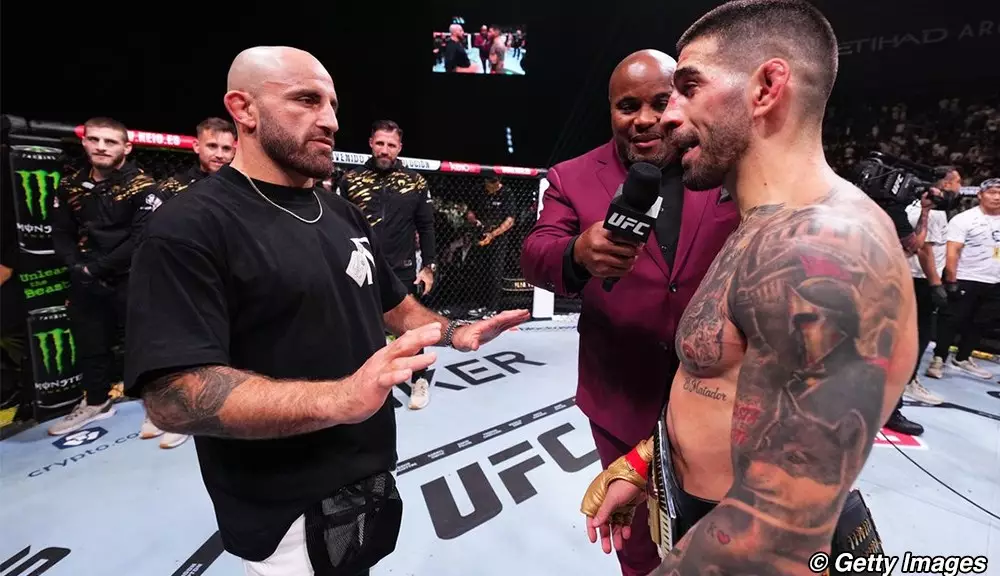Ilia Topuria has rapidly ascended within the UFC featherweight division, boasting an impressive record of 16-0 (8-0 in the UFC). Recent back-to-back knockout victories over renowned fighters such as Alexander Volkanovski and Max Holloway have undoubtedly elevated Topuria’s profile. Despite this meteoric rise, questions linger regarding the legitimacy of his aspirations for a championship bout at lightweight against Islam Makhachev. Topuria’s interest in doubling up divisions seems premature, especially when evaluating his experience and accomplishments in the featherweight class.
Joe Lopez, Volkanovski’s coach, articulates a critical viewpoint towards Topuria’s ambitions. According to him, before a fighter can consider moving up a division for a title shot, they must first establish themselves within their current weight class. Lopez advocates for a solid foundation of title defenses—preferably five or six—before a fighter should contemplate chasing glory in another division. This principle not only maintains the integrity of the championship rankings but also challenges fighters to truly conquer their home divisions before seeking new titles. Such a stance underpins the traditional values of competitive sports, where meritocracy should reign supreme.
Volkanovski’s situation serves as a critical reference point. After a spirited yet unsuccessful attempt to claim the lightweight title from Makhachev at UFC 284, he returned to defend his featherweight championship multiple times, a task that requires tremendous dedication and skill. His willingness to face Diego Lopes for an interim title, should he not receive an immediate rematch with Topuria, reinforces his commitment to solidifying his place in the division. This proactive approach highlights a fundamental aspect of competitive fighting: the pursuit of greatness is often fraught with setbacks, and resilience is a vital component of success.
In a striking assertion, Topuria proclaimed he could be the first fighter to submit Makhachev. This self-assuredness, while bold, underscores a common trait among fighters who have risen through the ranks by overcoming substantial challenges. Lopez acknowledges Topuria’s confidence but remains skeptical of his readiness for a higher weight class where the stakes are significantly greater. Makhachev’s skills and size make him a formidable opponent, emphasizing that while confidence is crucial, it must be balanced with experience and strategic acumen—qualities that Topuria still has the opportunity to cultivate within the featherweight division.
As the featherweight division evolves, fighters like Topuria are emblematic of the new wave of talent that seeks to challenge established champions. However, as Lopez poignantly points out, the pathway to dual-champion status must be paved thoughtfully with respect to the hierarchy of divisions. For Volkanovski, the road back to contention is marked by necessary sacrifices and calculated strategies. Fans and analysts alike will be watching closely as the narratives of these athletes unfold, reminding everyone that the pursuit of greatness in combat sports is as complex as it is compelling.

